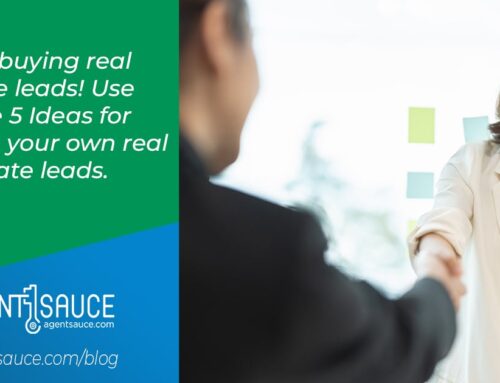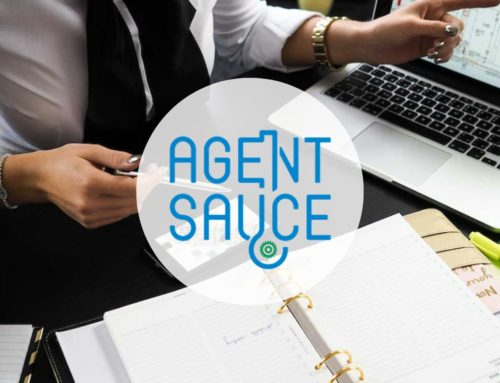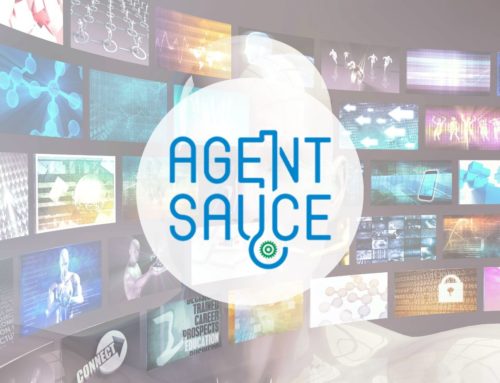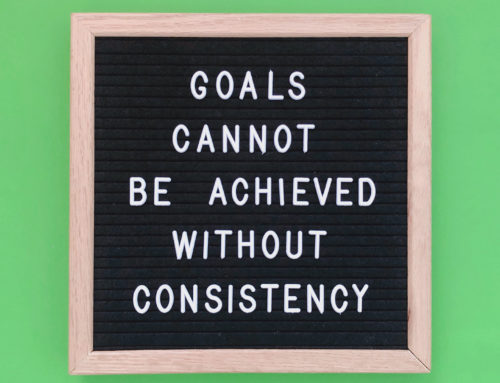
Lacey Everett
Director of Political Affairs and Engagement

Steve Thompson
RPAC Trustee Vice Chair

Zach Miller
Northside MIBOR RPAC Trustee
Podcast Takeaways
- MIBOR RPAC Info
- Celebrating 50 Years of RPAC
- RPAC is not Partisan – RPAC represents the REALTOR® party.
- Dues are not used for lobbying
RPAC – Helping Agents and Homeowners Podcast Transcript
Adam Small: Hello and welcome to The Real Estate Marketing Minute. I’m your host, Adam Small. and today we are talking about RPAC. Before we get into that I am going to turn us over to one of our guests who is going to do our RPAC disclaimer to make sure we cover all of our bases.
Zach Miller: Contributions to RPAC are not deductible for income tax purposes. Contributions to RPAC are voluntary and are used for political purposes. You may contribute more or less than the suggested amount. You may refuse to contribute without reprisal and the national Association of REALTORS® or any of its state associations or local boards will not favor or disfavor any member because of the amount contributed.
Adam Small: Hello and welcome to the Real Estate Marketing Minute. I’m your host, Adam Small. And today we have in the studio a couple of guests, actually three guests, and we are going to be talking about RPAC. Our first guest is Lacey Everett, who is the Director of Political Affairs and Engagement. And our next guest is Zach Miller who is a Northside MIBOR RPAC Trustee. MIBOR being the board of realtors here in Indianapolis. And then we have Steve Thompson who is an RPAC Trustee Vice Chair. Hi guys, how are you today?
Zach Miller: Hey, doing great, thanks.
Lacey Everett: Good.
Steve Thompson: Good.
Adam Small: Great, great. Thank you so much for joining us. Really excited about this podcast. RPAC is something that I think a lot of agents know about, but not necessarily have a lot of great information on unless they’re involved with you guys. But before we get started, why don’t we just kind of start with Steve, tell us a little bit about yourself and then we’ll just kind of go down the line here.
Steve Thompson: Yeah, so my name is Steve Thompson. My primary market is Madison County, Northeast of Indianapolis. And I’ve been in real estate for about five years and I’ve been on the RPAC Trustee Board with our local association for two years now.
Adam Small: Great, great. And Lacey?
Lacey Everett: Yeah, Lacey Everett. So I work here at our local association of MIBOR Realtor Association. And I have been part of this group for nine years, working specifically in government and community relations for five years. And prior to that, have some political experience at the local mayoral level and have run some campaigns. So government’s kind of in my blood, I would say.
Adam Small: Lucky you.
Lacey Everett: Yeah, it’s exciting for me.
Adam Small: All right. And Zach?
Zach Miller: Yeah, my name is Zach Miller. I’ve been involved in the industry since 2006, started in new home construction. In 2011, became an independent licensed realtor. And then through our local associations leadership academy is how I learned a little bit more about RPAC and our political advocacy. And since then I have been involved in one way or the other with RPAC and now starting as my first year as a trustee.
Adam Small: Great, great. So a lot of agents have at least heard of RPAC. It’s kind of in the background at the very least for them. But for those that are just starting out or for people that are thinking about getting into the real estate industry working as an agent, can we talk about what RPAC is and what it stands for, how it got started?
Lacey Everett: Yeah, I can, I can start off on this. So our National Association of Realtors is the largest trade organization in America. And it’s actually the only advocacy group that fights exclusively for home ownership and property rights and real estate investment. So RPAC is the Realtor Political Action Committee and that’s what we named the funding mechanism of that advocacy work.
Adam Small: Right.
Lacey Everett: So we have a PAC, we raise funds and as the REALTOR® Party, which is what we like to call it because it is very bipartisan, we work to leverage each other as real estate agents and association staff to promote public policy and advance candidates that are supportive of our issues, of home ownership issues and real estate issues.
Adam Small: So it’s really about home ownership as opposed to a political party one way or the other. Right?
Lacey Everett: Absolutely.
Adam Small: And the reason I ask is because anytime you hear the word political, people tend to think one party or the other, because we’re pretty much a two party system here in the US. So you are in no way or shape or form affiliated with one or the other, right?
Zach Miller: I would say, yeah, that’s correct. If you look from a national statistic level that our endorsements and support is really split down the middle 50/50 between Republicans and Democrats. So, as we are, even here on the local level, as we are choosing to make the endorsements, we don’t look at political party. We focus specifically on home ownership issues.
Adam Small: So it’s really the REALTOR® Party, which is what I believe you said, right Lacey?
Lacey Everett: Yeah, absolutely.
Adam Small: Yeah. So that’s great to hear. So what are some of the goals of RPAC at the local, state and even national level?
Steve Thompson: So whether it’s city hall, the State House, or the US Capitol, our mission remains to speak on behalf of the REALTOR Party with one voice and advance candidates in public policies that uphold private property rights, real property ownership, strong communities and a vibrant business environment. In recent years, local level activities have increased where realtors have gained political clout through our legislative victories in every corner of the country. Even in Indiana and here locally with our organization, we’ve had tremendous success with gaining a voice on behalf of property owners and advocating for those public policies that benefit property ownership.
Adam Small: So you guys don’t mind if I ask what some of the local wins you might’ve had are?
Lacey Everett: Absolutely. We’re happy to share that. So some of these issues are on both the state and the local level because we work really well with our state association on issues that are coming up at the State House. But then locally, we’re in city council offices, we’re working with mayors on all types of issues that are going to impact real estate, but also homeowners. We are talking about property taxes, being able to cap those so that they’re a predictable amount of money that homeowners will have and have the ability to budget for them instead of the kind of flux that they were experiencing prior to that.
Adam Small: Well I remember a few years back here on the north side of Indianapolis, there was a big thing because they went through and they basically reevaluated all the property and the homes. And some people were saying, “Well I got to sell because I can’t afford the property tax anymore.”
Lacey Everett: Yes. So, ultimately, when it comes to property taxes, we want our homeowners to have the ability to really predict what that cost is going to be and have peace of mind that that’s not going to change significantly. They have to be able to budget. They have to be able to plan accordingly. And when they’re looking at a property to buy or when they’re getting ready to sell, they need to have kind of a good baseline of what that’s going to look like for them so they can plan.
Adam Small: Right.
Lacey Everett: Beyond that… Oh my goodness, there are so many different issues. We have been working really regularly on short term rental regulations. On landlord issues. And the reason why we get involved in those topics is because as private property owners, you have certain rights that you need to have people standing up for, but at the same time you also are responsible.
Adam Small: Right.
Lacey Everett: And so we have to kind of find that that balance with local government, which is trying to really keep landlords and property owners accountable. But at the same time you can easily cross that line and it’s undue restrictions and high fees.
Adam Small: Place an undue burden on people that are trying to rent their properties out and stuff like that-
Lacey Everett: Absolutely.
Adam Small: … is what you’re talking about, right? So trying to maintain that balance between regulation and doing right but not overly burdensome so that it makes it hard to rent or do whatever with your property. Right?
Lacey Everett: Absolutely. And that really just lends to why the relationship building is so important on all levels of government and why we, as an association, as an advocacy arm, are so successful. Because we don’t just endorse candidates, but we’re building relationships. The real work happens after that check is cut.
Adam Small: Right.
Lacey Everett: And those people get elected, then we have to build that up so that we can have those conversations. And sometimes they’re tough conversations.
Adam Small: Right, right. Absolutely. So, 2019 is a kind of a big milestone for RPAC. You guys have been around for 50 years now. What are some of the biggest successes RPAC has had over the years?
Steve Thompson: Yeah. So 2019 is a big milestone for RPAC. So 50th anniversary of RPAC, overall. The entire time we’ve been in place, we’ve been a member led organization, upon facing growing negative impacts of legislation on real estate businesses and homeowners. We decided 50 years ago that it was time to take action. The National Association of Realtors hired its first lobbyist in 73. And RPAC was formed and launched in 69 and has since supported candidates of any party that understand and champion real estate issues.
Steve Thompson: We’ve experienced successes at all levels of government from federal tax reform to national flood insurance and sales tax on commission, and even as low as preventing ordinances on illegal signs. RPAC and the REALTOR Party has become a force to be reckoned with and we’re very proud of it.
Adam Small: Great, great. So when an agent contributes, how are those contributions used on both a local and a national level? And as a followup to that, can an agent say, “Hey, this is how I want this contribution used?”
Zach Miller: Sure. No, that’s, that’s a, that’s a great question. 100% of the investments to the PAC are used to support candidates onto local, state and federal level that do understand and support our issues as realtors and what we advocate for. On each level, RPAC endorsements and investments are decided upon by a Board of Trustees, of which Steve and I are on the Board of Trustees here on the local level. And those boards are made up of both REALTOR members and affiliate members.
Zach Miller: So whether they’re with a lender or a title company, they also have a seat at the table. But due to campaign finance laws, investors at the local and state levels, they can’t specify a candidate that those funds go to. However, on the national level, there is something called The President’s Circle that a member can invest in and have the ability to allocate a certain amount to a congressional candidate of their choice.
Adam Small: Oh, nice. Nice. So there is some level of control over where their funds go but at the same time, it’s also decided by a board, not a board of realtors, but the board of the RPAC group locally?
Zach Miller: Correct. Yep, yep. Of the trustees. Yes.
Adam Small: Right. Right.
Lacey Everett: And those trustees are REALTOR members. So this is organized by the association staff, but we are not voting members. It is our realtors and our affiliate members that sit on that trustee board and make those decisions. So there’s control in that way. And they also, as trustees, really represent the rest of their colleagues, so are available to their colleagues to discuss issues, to talk about candidates that might be running for office and get even more information than we would at the interview table.
Adam Small: Right. So from your perspective, you’re a supporting group but you’re not a directing group, per se?
Lacey Everett: Correct. So we support the process, the endorsement process. And from that point on, once a candidate has been elected to office, we maintain that relationship and we do a lot of the lobbying work at that point.
Adam Small: Right.
Lacey Everett: We bring our realtors along with us. They’re are the subject matter experts on how this impacts them and their clients.
Adam Small: Right.
Lacey Everett: But we really truly… You got to have somebody that’s doing this full time because legislation is… There’s pages deep.
Adam Small: Even the legislators can’t keep up with it, right?
Lacey Everett: They can’t. Know how many of them sit at the table and say they haven’t read anything?
Adam Small: Exactly. Exactly.
Lacey Everett: It happens. It happens.
Adam Small: So how does RPAC impact the real estate agent directly? And why should they support RPAC?
Steve Thompson: So there’s no doubt that our primary concern is to protect the rights of property owners locally, at the state level and even nationally. But what we know and what any realtor should hopefully hold to be true is that the biggest advantage that a property owner has when you’re buying or selling a property is the opportunity to work with a realtor.
Adam Small: Right.
Steve Thompson: So one of the biggest things that we do as part of RPAC and REALTOR Party is advocate for rights on behalf of the realtors as well. So not only is it important for us to be watching the backs of property owners, but we’re also watching the backs of realtors as well.
Steve Thompson: So like when I was talking about sign ordinances, that’s something that can be very minuscule to most people, but that can have a major impact on the business of a realtor. If you’re not able to put signs out where you want to because a municipality has regulated that, then that can have a huge impact on you, your business and eventually your checkbook.
Adam Small: Right, right. And along those lines, I was just reading where there was at one point a proposal for a $25 per sign permit fee. And if you’re putting out a lot, working with a lot of listings, that could add up after a while.
Steve Thompson: Absolutely.
Adam Small: I mean that’s a lot of money directly out of the agent’s pocket. So that’s something where you guys step in and advocate to kind of help prevent it from having a negative impact on the realtor themselves, right?
Steve Thompson: Exactly. Yeah. Little things like that, that $25 fee adds up really quickly. And any financial contribution you make to the REALTORS RPAC can have a huge financial benefit to you down the road when they’re looking out for interests for you like that.
Adam Small: Right.
Steve Thompson: The other biggest thing is, one of the major issues that we’ve always had a huge stance against is taxes on services. So imagine if someone had to pay a sales tax on your commission as an agent.
Adam Small: Right.
Steve Thompson: Now that would have a huge financial detriment to you and your business.
Adam Small: Especially when you’re talking about such a large transaction. For a lot of people it’s the largest transaction of their life, right?
Steve Thompson: Exactly.
Adam Small: So those are great reasons why an agent should support RPAC, but do some of the other dues that they have to pay along the way… Because there’s NAR dues, there’s local dues, state dudes. Does any of that go toward RPAC or toward these sorts of things? Maybe not RPAC directly, but toward this sort of lobbying?
Lacey Everett: Ultimately, your dues do not go toward the endorsements that RPAC make on behalf of candidates. They are by law voluntary contributions. Aren’t covered by your regular dues at all. Some of the activity of the advocacy staff of your associations do get covered in the dues, just like everybody else on staff. But the lobbying efforts and those candidate endorsements are voluntary. They’re made by colleagues, they’re made by realtors that have basically learned and know the importance of being at the table.
Adam Small: Okay. So, there’s a very clear line there as to what you can and can’t do with the dues because of the campaign and political finance laws, right?
Lacey Everett: Absolutely. You have to volunteer to invest your money in this process.
Adam Small: Right. So that’s actually a really good thing because I would hate the thought of donating to somebody that I just didn’t support. Right?
Lacey Everett: Understood. Absolutely. And I think that’s kind of the key too is it’s an educational process. We really don’t want people to invest without truly knowing what this goes toward and why it impacts them. Even if you’re not always on the same side of a of an issue or you might not agree 100% with a candidate. I think you can look inwardly and know, even on a personal level, you probably don’t vote for somebody that you agree with 100%.
Adam Small: Right.
Lacey Everett: But our effort is intended to make sure that people are aware and it’s a very transparent process that they’re opting to be a part of.
Adam Small: Great. Great.
Zach Miller: And as we said before as well… I just want to kind of jump in there. Is that whenever we do talk with candidates and make decisions on investing in them and endorsing them, we look specifically at realtor and homeowner issues. And that’s that they may have other stances on other issues that are outside of that, but here at RPAC, we’re going to ask them specifically about where they stand on homeowner issues.
Adam Small: Right. You’re digging into the homeowner side of things. It’s the REALTOR Party as opposed to whatever other party it may be. Right?
Zach Miller: Exactly.
Adam Small: Exactly. So, beyond making a financial contribution, how can an agent get involved and help make a difference?
Steve Thompson: All right, so there’s three things. Our mantra we like to use is this; vote, act, invest. So the most important thing you can do as a realtor and more so as a citizen of the United States is vote in every election. Get educated on the candidates that you have the opportunity to select from and look at the ones that have received an endorsement from your colleagues and then decide for yourself whether or not you choose to support them.
Steve Thompson: The second thing, that act, is there’s a lot of issues that come up, whether it be national flood insurance or anything else. NAR sends out calls to action that are very quick and very effective and very easy for you to do. You can sign up for those REALTOR Party alerts by texting REALTORS, in all caps, to 30644. REALTORS to 30644. But just keep in mind that if you are texting, message and data rates do apply to that.
Steve Thompson: And then finally that third thing is invest. If you truly believe in what we’re doing and that your business is very valuable to the economy and that property sales is the largest driver of our economy, then you have to believe in this and what we do and the biggest thing you can do is invest. So our RPAC protects your profession and the clients you serve. And any involvement in that organization determines how well we can shape and define the size, scope and success of our industry.
Steve Thompson: This is not a time to sit back and let your colleagues cover the cost for you. If you truly believe in what we’re doing as realtors and as an organization you need to get involved.
Adam Small: So Zach, you actually mentioned earlier that on the Board of Trustees there were affiliate members, like mortgage and title and that sort of stuff, representation.
Zach Miller: Yes.
Adam Small: So what about them? What is their role in RPAC and how do they get involved?
Zach Miller: Sure. Their role when it comes to the Board of Trustees for RPAC is no different than a REALTOR members. They are looking out for the exact same things that we are as realtors. They know our side of the business obviously on the transaction side. They know what all goes into a real estate transaction and they also know what we look for for the homeowners. So really their position here on the Board of Trustees is no different than ours. They know exactly the issues that we’re looking out for. They ask the right questions and help us make those endorsements.
Adam Small: And in large part because they have a vested interest as much as an agent or a homeowner does for that matter. Right?
Zach Miller: Absolutely. Yeah. They’re part of the industry just like everyone else.
Adam Small: Boxed up, right?
Zach Miller: Just like we all are. So yeah.
Adam Small: Exactly.
Lacey Everett: And I would add to that that when it comes to some of the ordinances and laws that we’re up against at times, sales tax on services, that’s going to impact them as well.
Adam Small: Right.
Lacey Everett: So it’s not just realtors that might be impacted in their direct business, but all of our affiliated companies too.
Adam Small: Right. And so how would an affiliate get involved with RPAC?
Zach Miller: They are able to invest in RPAC just like any REALTOR member. It is available to them to be involved. And like I said, there is a seat on our local Board of Trustees that is representative of affiliates. So anytime that that seat becomes available, anyone who’s an affiliate member is always welcome to run for that seat as well.
Adam Small: All right guys, so it’s been a great interview so far. Before we wrap up, anything else that an agent should know about RPAC or any misconceptions or other initiatives you’d like to put out there before we end? Steve?
Steve Thompson: Yeah, the one thing I would want to get across is that sometimes I talk to other REALTOR members and they’re concerned that whether we say it is or not, that there is some kind of bias toward one party or another or one issue or another. And my favorite thing that I hear about RPAC and about the REALTOR Party is that it is just that. It’s not one political affiliation or another. We’re truly concerned about realtor issues.
Adam Small: Right.
Steve Thompson: And if you get a mailer or you get a call to action or you get an email and it’s favoring one candidate over another or favoring the opponent to your favorite candidate, keep in mind that we’re not focused on, overall, anything. What we’re focused on is who’s who we believe is the best candidate to support property rights and realtor issues.
Adam Small: Great. Great. Lacey?
Lacey Everett: I’ve got two things that I want to make sure that we leave with. One thing is a mantra, another mantra, that we use on the regular. And it’s, “If you’re not at the table, you could easily be on the menu.” So there’s a real importance to being at the table having these discussions with our elected officials.
Lacey Everett: The other thing that’s probably not as widely known and yet we’ve hit on the bipartisan side of things. We’re actually the most bipartisan PAC in the country. So if you look at that split nationally, it is almost completely down the middle. And while one state or one local organization may look to be favoring one side or the other, you go a couple cities over or a state over and you’re going to see a different landscape. So these issues are truly on both sides of the aisle and we also have to participate on both sides of aisle. So we do not make enemies. We are friends with local government, state government and national government. It is the most effective way to do business.
Adam Small: Great. And Zach?
Zach Miller: Yeah, I would say something that I think that a lot of people don’t know that was most eye opening for me when I decided to get involved in RPAC was actually the significance in Washington. As Lacey said earlier, the National Association of Realtors is the largest trade organization in America. And we are, on the political action side, we are one of the largest lobbying groups in America. So when we go out to DC, we go out every May to have our time to lobby.
Adam Small: Right.
Zach Miller: They know that we’re there and they essentially kind of roll out the red carpet for us and they make time to speak with us about our issues.
Adam Small: Your congressmen and senators is what you’re speaking of, right?
Zach Miller: Congressmen, senators. And actually even this year, the President.
Adam Small: Wow.
Zach Miller: So I mean we talk from every level from on the local level to mayors all the way up to when we have the ear of the oval office, you know, no matter who’s in that office at any given year, when they’re listening to you, you’re making a true impact and you are relevant.
Adam Small: Right, right. Great. So wow, that’s a really good one to take away that your local efforts can in fact reach on a national level there. That’s very impressive. Great to hear. All right guys, thank you so much for joining us. It’s been a great interview. Really enjoyed it and learned a lot about RPAC today. And to our listeners, thanks for listening to The Real Estate Marketing Minute. If you like what you hear, don’t forget to like and or subscribe to the podcast. We’ll see you next time.







